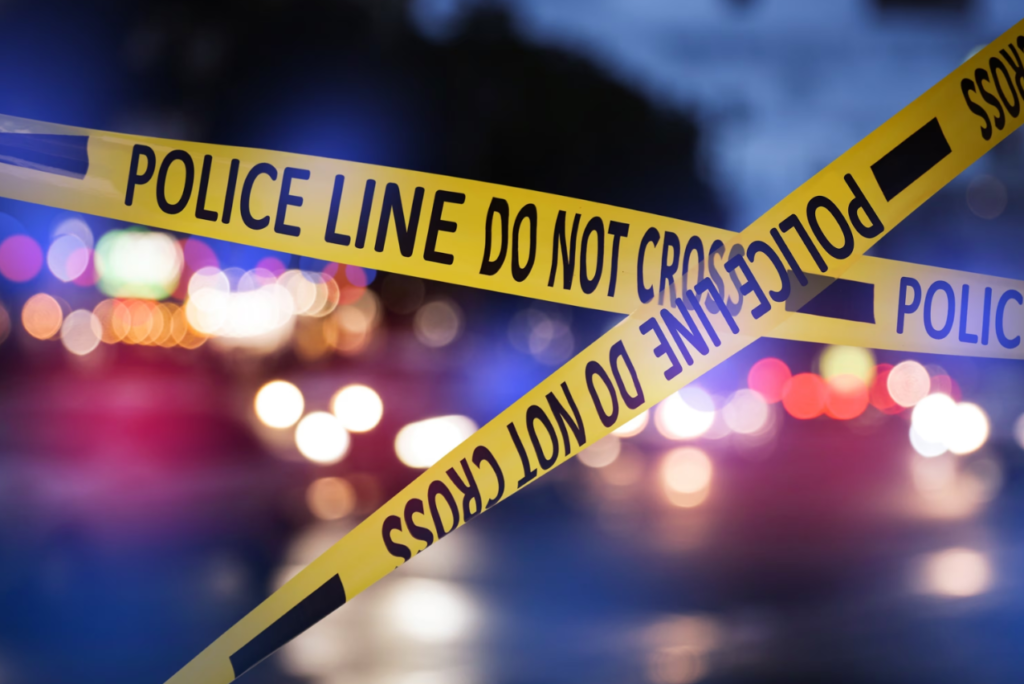A corporal of police was found dead after he shot himself in the chin in a suicide mission at the National Police Service Campus in Nyeri county.
The incident happened Monday November 18 morning and involved corporal Collins Imoni Onyando.
He blew his head near the residence of the college commandant.
The motive of the incident is yet to be known, police said.
Police said Onyando shot himself below the chin and the bullet exited on the head.
The deceased was on duty third shift together with another junior officer at the residence when he left saying he was attending to a call at about 2 am.
It was then that the colleague heard a gunshot and mistook it for a backfiring motorcycle.
Three hours later, another officer who was reporting on duty to relieve the officers noticed the lifeless body of the deceased lying about 40 meters from residence gate.
She alerted the colleagues who confirmed he was dead.
Police said a rifle make CZ loaded with a magazine of 29 rounds of ammunition was found near his feet and empty cartridge was recovered at the scene.
The body was moved to the mortuary.
This is the latest such incident to happen and is linked to trauma.
At least three suicide cases involving police officers are recorded every month.
Officials say police are generally on the receiving end of all community problems.
They are expected to maintain law and order in very difficult situations, besides putting their lives at risk.
Over the years, a spike in deaths in the service has been linked to trauma.
They include deaths by gun.
Last week, police authorities said police officers worldwide tend to die by suicide more than the general public.
Inspector General of police Douglas Kanja also said depression affects all people regardless of age or social status, but police officers report higher levels of depression and post-traumatic stress disorder than the general population.
He said police work is a very noble career because one gets to serve and protect humanity.
However, the nature of policework as shown by research globally, is also very demanding and stressful.
He made the remarks at an event organized by the Disability Mainstreaming Foundation of Kenya (DMF-Kenya) and the Africa International University on mental health advocacy.
He said the meeting gave them a good opportunity to highlight the urgent need for attention to mental health issues and encourage evidence-based research to inform our policies on mental health, particularly for police officers.
This follows increased cases of mental health among police officers in the country.
While all people are vulnerable to some level of mental illness, the vulnerability of police officers to mental illness is escalated by unique factors, he said.
He said police officers are constantly handling traumatic and disturbing scenes of crime and accidents that often leave them with long-term mental and psychological trauma.
“Consequently, police officers worldwide tend to commit suicides more than the general public.
On the same note, depression affects all people regardless of age or social status, but police officers report higher levels of depression and post-traumatic stress disorder than the general population,” he said.
Relatedly, Kanja said, they are now seeing an increasing trend among the youth and children engaging in substance use and drug abuse yet police officers have not been spared either despite being the law enforcers.
“From consumption of illicit brews to abuse of drugs i.e. bhang, heroin and other substances contributing significantly to mental illness and criminal behavior.”
Unfortunately, he added, most law enforcement officers shy away from seeking mental health assistance which delays possible interventions in their situations.
Kanja said due to these realities and the prevalent challenges, mental health remains a pertinent issue in our country, and of particular concern to the National Police Service.
To deal with mental illness, the National Police Service has been undertaking deliberate measures by adopting a multi-pronged approach, he said.
He argued the congregation provides much needed platform where we can share ideas and information on mental health.
He said stigmatization that comes with mental illness is still a hurdle that all of us should strive to overcome.
“This calls for continuously creating awareness about mental health and mental illness among the members of public and most importantly, police officers,” he said.
He said all should challenge misconceptions, stereotypes and negative perceptions surrounding mental health in order to create an environment where individuals feel comfortable to seek help and support without fear of discrimination.
He said they have established the Directorate of Chaplaincy and Counseling to spearhead and coordinate professional counselling and psychosocial support for officers.
Through partnership with medical institutions and provision of medical cover, police officers are also able to access psychosocial support but much more is required.
Comedian Omondi In Court As Magistrate Condemns His Detention
